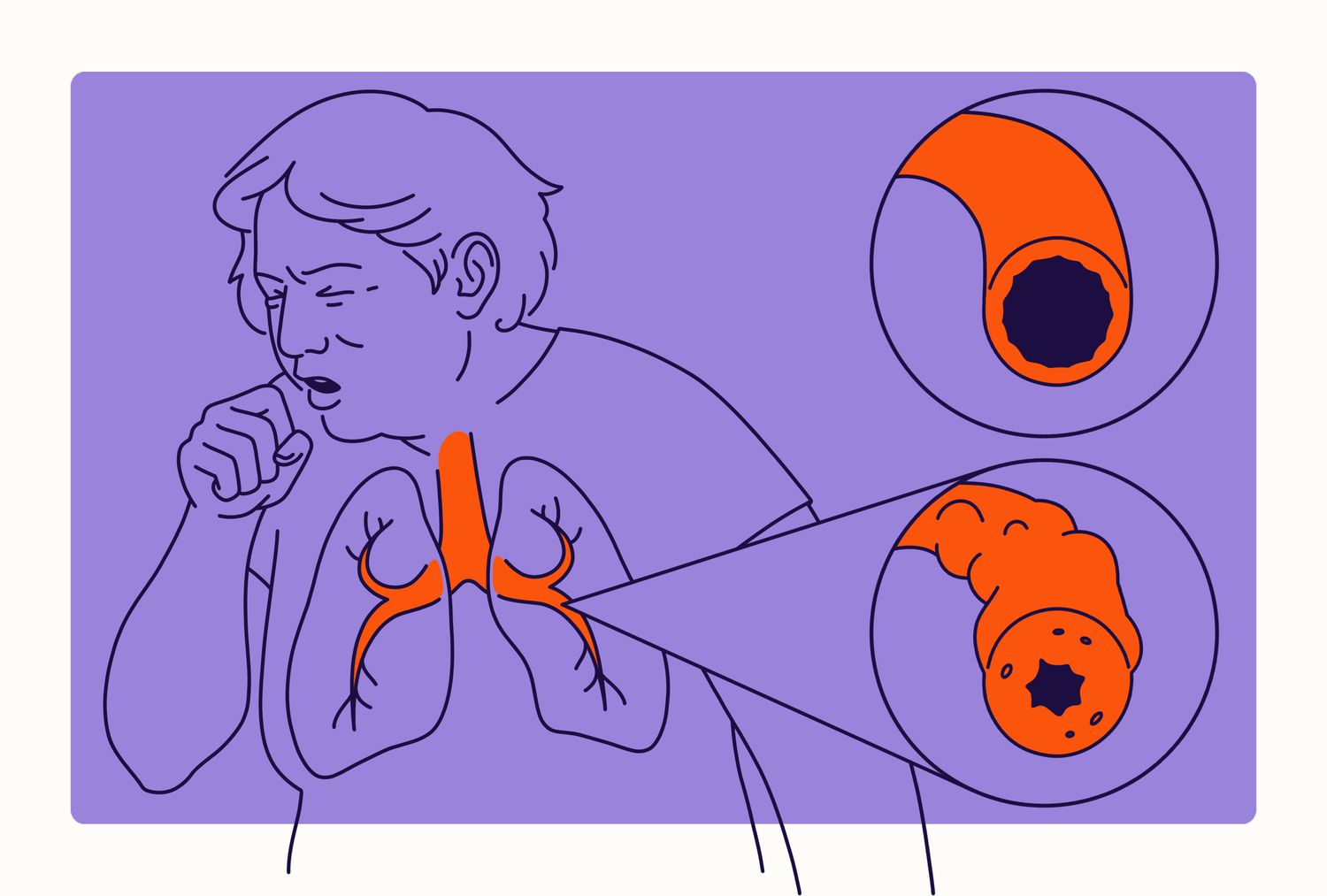
The cough didn’t go away. Weeks passed. It stayed. Sometimes dry. Sometimes heavy. He tried tea. Tried lozenges. Blamed the weather. Blamed stress. He didn’t connect it to breathing. Not at first. The symptoms were quiet, slow, unbothered.
The symptoms were quiet, slow, unbothered
It wasn’t just the cough. Climbing stairs felt harder. Talking longer made him pause. There was no sharp pain. Just a dull resistance. A sense that the lungs were trying harder for the same result.
He waited too long to ask
By the time he saw the doctor, things felt different. Mornings were the worst. He cleared his throat more than he spoke. He said it started months ago. The doctor didn’t look surprised.
The name felt bigger than the symptoms
COPD. He had to ask what it meant twice. Chronic Obstructive Pulmonary Disease. It sounded technical. But the doctor broke it down simply. His airways were narrowed. His lungs weren’t emptying fully. The explanation felt more personal than medical.
His lungs weren’t emptying fully
He thought breathing was just about taking air in. Now, he was told the problem was getting it out. Air trapping, they called it. That changed how he understood everything.
It wasn’t something they could fix
The doctor made that clear. No cure. Just management. He didn’t like that word. It made him feel responsible. As if he had to keep something under control he barely understood.
Inhalers became part of the morning
Not the kind for allergies. These were slower. He learned to press and breathe. Not rush. Not panic. It wasn’t instant. But over time, it helped. Some mornings he forgot to use it. He never forgot twice.
He paid attention to the weather more than before
Humidity made it worse. Cold air tightened everything. Smog slowed him down. He used to walk everywhere. Now he checked the forecast first. Not to plan his day. To protect his lungs.
Exercise wasn’t off-limits, just different
He didn’t stop moving. He just moved smarter. Shorter walks. Longer rests. He joined a class once. Breathing-focused, not intense. He felt silly at first. Then he noticed the difference.
Diet showed up in conversations
He hadn’t thought food mattered. But it did. Certain meals left him bloated. That pressure pushed against his chest. He avoided them quietly. No one noticed. But his body did.
He learned to watch for infections
A simple cold turned deeper faster. The doctor gave him antibiotics to keep at home. “Just in case,” they said. He never liked needing a backup plan. But he was glad to have it.
He noticed how smoking never came up anymore
He quit years ago. Everyone did eventually, he thought. But the damage had stayed. COPD wasn’t about now—it was about back then. Choices that waited decades to matter.
The routine became habit
He checked his inhaler. Watched his breath. Tracked symptoms. Avoided triggers. Rested when needed. He didn’t call it brave. He didn’t call it anything. It was just part of the day now.
He didn’t tell most people
They saw the inhaler and assumed asthma. He didn’t correct them. COPD felt too final. Too long. It wasn’t shame. Just quiet privacy.
Support didn’t always look like advice
A neighbor asked if he needed help carrying groceries. He said no, then yes. They didn’t talk much. Just carried bags in silence. That moment stayed with him.
Some days were harder, but not all days
There were mornings when even walking to the mailbox felt too far. Then there were days he forgot about the diagnosis entirely. He learned to take both without explanation.
He learned how many people live with it quietly
The support group surprised him. So many faces. Different ages. Different stories. But the same thread—adjusting, managing, making room for breath.
